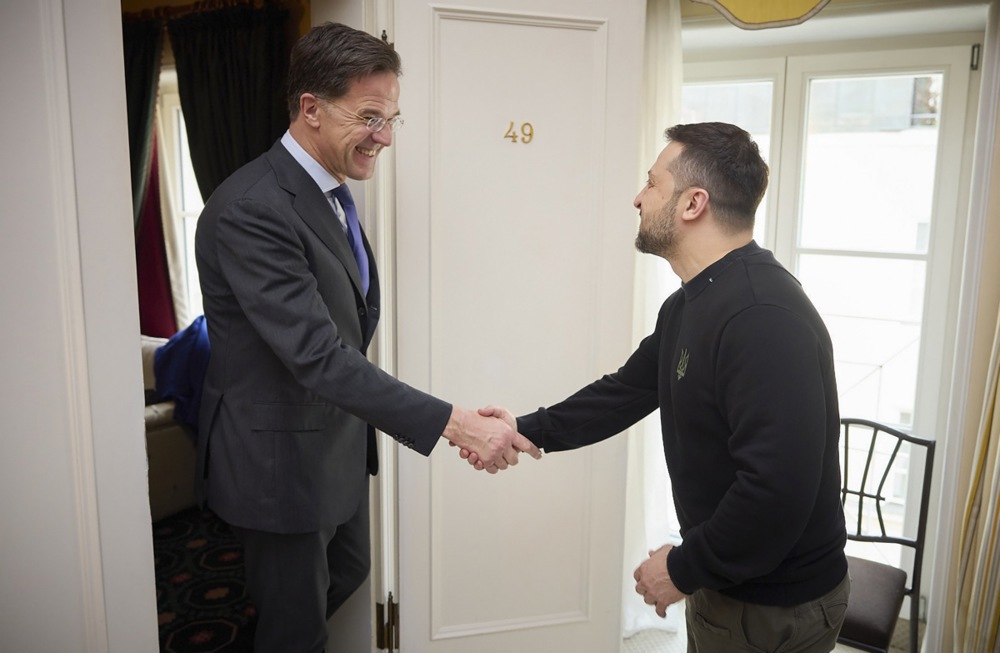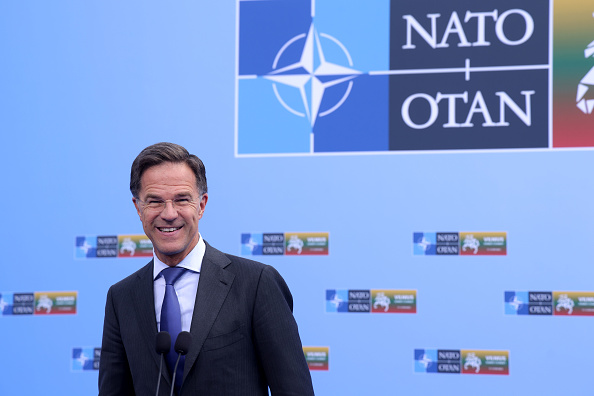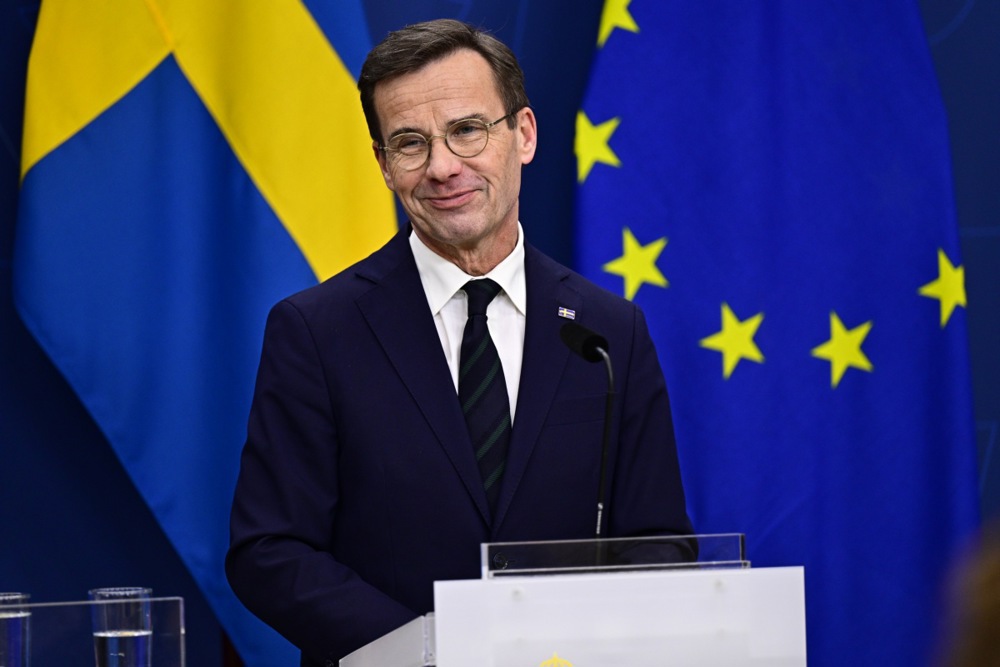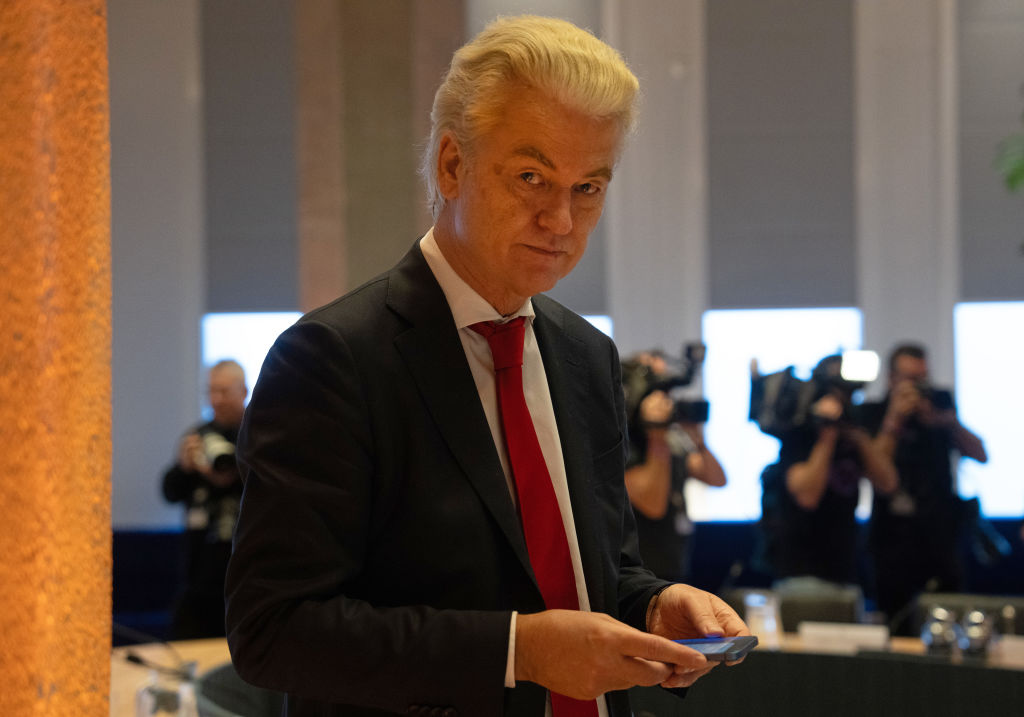Dutch caretaker Prime Minister Mark Rutte looks to be in pole position to become the next NATO Secretary-General after outmanoeuvring the Estonian Prime Minister Kaja Kallas, who is said to be regarded as “too hawkish”.
Despite being the underdog, Kallas is fighting back.
While visiting Berlin, she said Estonia viewed two primary criteria as crucial for selecting a new NATO chief.
Firstly, he or she should be from a country that reaches the Alliance’s 2 per cent of GDP defence-spending goals. Secondly, such a leader should hail from Eastern Europe, Kallas insisted.
The Secretary-General Jens Stoltenberg is set to retire in October and wide-ranging debates over his successor are ongoing.
For a long time, Kallas was considered as a top contender but she is increasingly seen as too hostile and militaristic regarding Russia.
Rutte and Romanian President Klaus Iohannis are now seen as the main contenders.
My latest for @brusselssignal, on the case for @KlausIohannis as next @NATO Secretary General. TLDR; this time the post must go to an Eastern European leader, and Iohannis is only sensible choice. Good luck!https://t.co/p6SMhaR9zp
— Gabriel Elefteriu FRAeS (@GElefteriu) March 14, 2024
Leadership of NATO has to be agreed upon unanimously among members.
Kallas would almost inevitably rule out Estonian support for Rutte, who has received backing from the majority of NATO nations, including the US, Germany, the UK and France.
Regarding Rutte, Kallas said: “He does not meet these [her two suggested] requirements.
“Some country leaders I hear say, ‘Of course we will save the 2 per cent [GDP defence-spending].’ But then a footnote reveals that this will only be in 2030.
“Come on! We need that now,” she demanded.
Kallas, though, did allude to the Dutch politician’s deal-making capabilities. “In coalitions, you have to compromise and keep everyone on board.
“The same happens in an alliance.”
Opening room for possible negotiations on the issue, she said Estonia would support a candidate who could secure majority support.
Kallas highlighted that Estonia had already been above the required 2 per cent GDP defence-spending figure before Russia invaded Ukraine, adding: “And then we raised that to 2.6 per cent.”
Estonia now sits at 3.2 per cent. To pay for that she admitted: “We have no choice. Taxes have to go up. That is not popular.”
Last year, the Netherlands only invested 1.63 per cent of GDP into the military, while it has been talking about reaching the 2 per cent target for more than a decade now. The current budget is aimed at 1.95 per cent.
Kallas noted that it was challenging to justify such spending to citizens of nations with far friendlier neighbours than Estonia has.
She made a dramatic comparison of the situation in 1938, when Hitler took over Czechoslovakia. “The increase in defence spending at the time came too late,” she pointed out.
In response to a question about calls to halt the war in Ukraine, Kallas replied: “In a world full of violence, pacifism would be suicide – to put it very simply.”
She was adamant more military investment had to be made by NATO members, stating: “This is a ‘hot war’, and it is not far away.”
According to Kallas, the Russian aggression in Ukraine should be “a wake-up call for everyone”.
In light of that, she called on NATO to raise the 2 per cent level to at least 3 per cent.
Kallas further suggested that all Alliance nations should allocate 0.25 per cent of their GDP to Ukraine for military aid which, she pointed out, Estonia is already doing.





